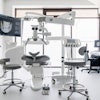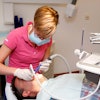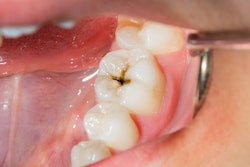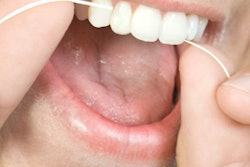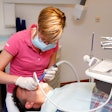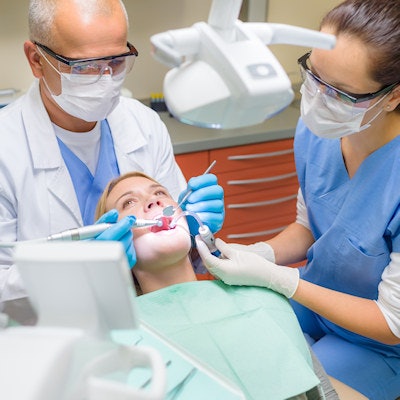
Which gender has the best oral hygiene habits? In the U.S., women exhibit better oral hygiene behaviors, including proactively visiting the dentist, than men, according to a study published May 8 in the Journal of Dentistry.
Women in the study were better about proactively visiting the dentist than men, whose habits may put them at a greater risk for dental diseases. Dentists, hygienists, and others interested in dental public health may want to develop gender-specific strategies to address the disparities, the authors wrote.
"Despite nationally stated goals to reduce oral health disparities, our study confirms a persistent gap in preventive and routine dental care between men and women," wrote the authors, led by Dr. Frank Licari, MPH, MBA, of the Roseman University of Health Sciences College of Dental Medicine in Utah (J Dent, May 8, 2022, Vol. 122, e104157).
Oral health is a cornerstone of overall health, but many people are unaware of its importance. Past research has shown that, in general, women perceive oral health as having a greater effect on quality of life, show better oral health literacy, and feel more positively toward dental visits compared to men. However, little recent research explores whether these disparities persist, the authors wrote.
To better understand the relationship between gender and oral health, researchers analyzed data from 4,741 men and women in the 2017-2018 National Health and Nutritional Examination Survey. The participants were ages 30 and older. After adjusting for demographic characteristics, multivariate and logistic regression analyses of outcome variables, including oral health behaviors, were conducted.
When participants were asked when they last visited the dentist, the men responded much differently than the women. About 54% of women reported having a visit within the past six months or less compared to about 46% of men.
Additionally, women were more likely to visit the dentist on their own or for treatment of a condition that the dentist discovered at an earlier exam. Conversely, men were more likely to visit the dentist in response to being called in by the dentist or for dental pain or a condition that required treatment, they wrote.
The study shortcomings included that the data relied on self-reported information. It was also subject to recall bias, and the authors could not verify reported dental visits.
Since the results suggest that women exhibit better oral health practices and behaviors, men may experience a disproportionate burden of oral disease, they wrote.
"Incorporating gender into care approaches might offer modest improvement in oral health outcomes," Licari and colleagues concluded.

